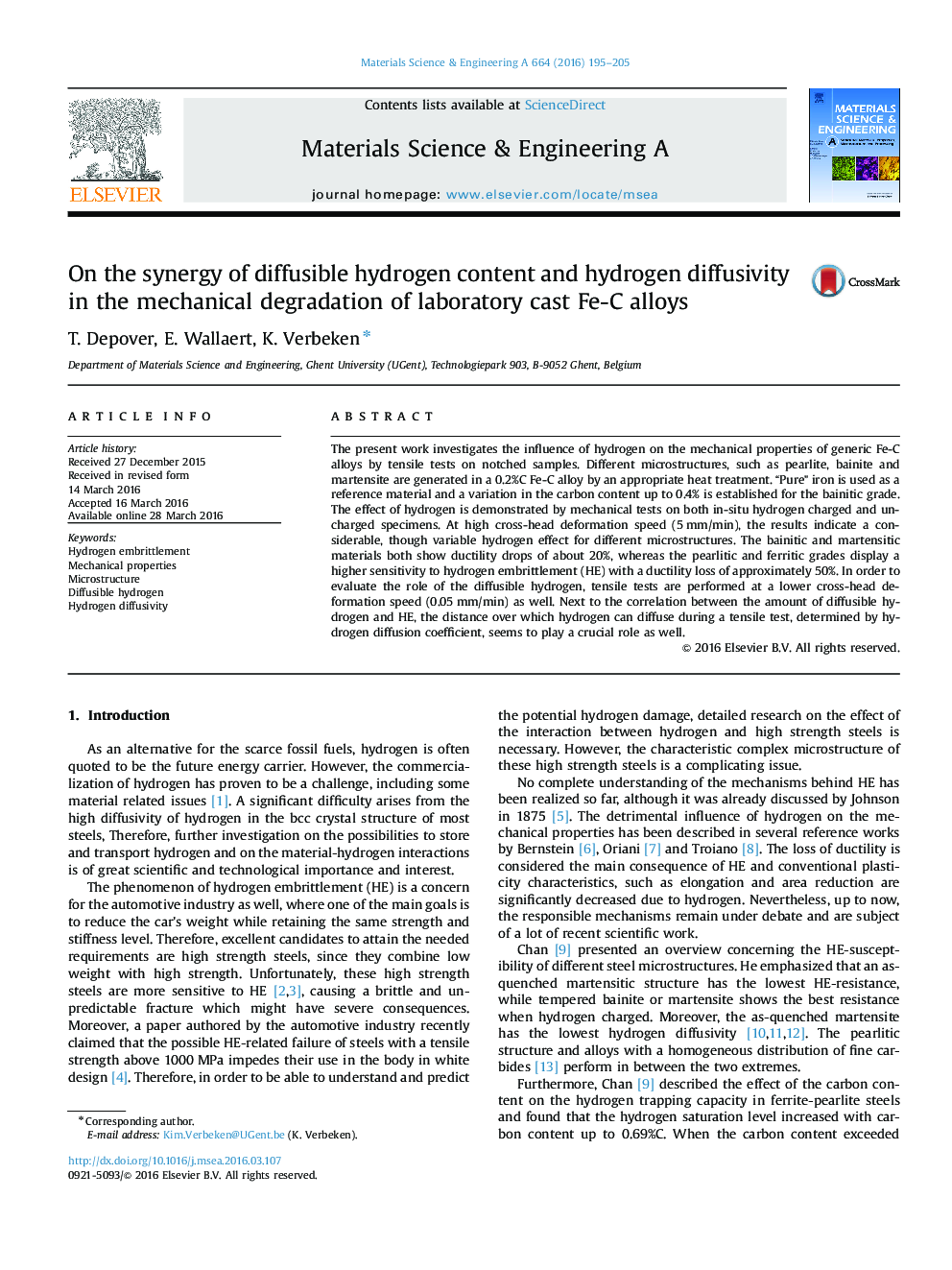| Article ID | Journal | Published Year | Pages | File Type |
|---|---|---|---|---|
| 1573418 | Materials Science and Engineering: A | 2016 | 11 Pages |
Abstract
The present work investigates the influence of hydrogen on the mechanical properties of generic Fe-C alloys by tensile tests on notched samples. Different microstructures, such as pearlite, bainite and martensite are generated in a 0.2%C Fe-C alloy by an appropriate heat treatment. “Pure” iron is used as a reference material and a variation in the carbon content up to 0.4% is established for the bainitic grade. The effect of hydrogen is demonstrated by mechanical tests on both in-situ hydrogen charged and uncharged specimens. At high cross-head deformation speed (5Â mm/min), the results indicate a considerable, though variable hydrogen effect for different microstructures. The bainitic and martensitic materials both show ductility drops of about 20%, whereas the pearlitic and ferritic grades display a higher sensitivity to hydrogen embrittlement (HE) with a ductility loss of approximately 50%. In order to evaluate the role of the diffusible hydrogen, tensile tests are performed at a lower cross-head deformation speed (0.05Â mm/min) as well. Next to the correlation between the amount of diffusible hydrogen and HE, the distance over which hydrogen can diffuse during a tensile test, determined by hydrogen diffusion coefficient, seems to play a crucial role as well.
Keywords
Related Topics
Physical Sciences and Engineering
Materials Science
Materials Science (General)
Authors
T. Depover, E. Wallaert, K. Verbeken,
